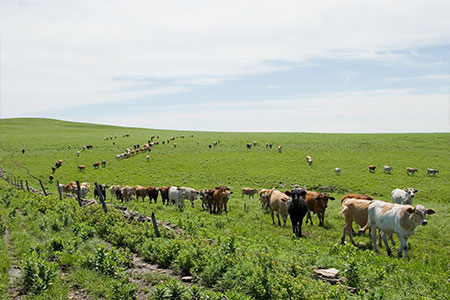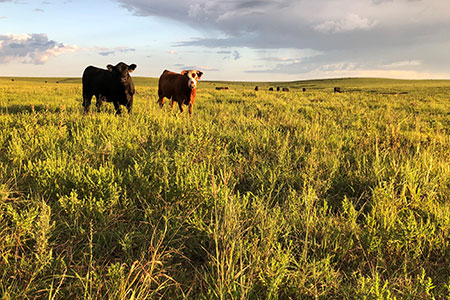How Cargill is working with McDonald’s in forage conservation.


Using beef as a force for good requires Cargill to find innovative solutions to contemporary problems. Many are unaware of the impact that beef production can have on other species. Cargill’s partnership with McDonald’s Canada and Ducks Unlimited Canada (DUC) is designed to remove significant quantities of carbon dioxide from the atmosphere while regenerating land for ecosystems to thrive.
Beyond beef: farming to restore
Beef farmers and ranchers play an important role in providing quality food. However, few people know they also play an essential role in protecting Canada’s land, water and wildlife by returning less productive soil to perennial grass. Grasslands are some of the world’s most productive and diverse ecosystems, but these habitats and the species they support continue to be lost at alarming rates.
Canada’s prairies contain wetlands, lakes, rivers and valleys that provide habitat to more than 60 wildlife species at risk. This project will help expand natural habitat on Canadian ranch land and provide enhanced water quality, as grasslands naturally filter harmful nutrients from water.


The power of grass
With the urgency of unprecedented environmental challenges, DUC has teamed up with McDonald’s Canada and Cargill to support rancher-led work through a $5 million CAD Forage Program. The program will work to return 125,000 acres (50,585 hectares) of cropland to grass and pasture by 2025.
Collectively, the impact of this program is comparable to removing 75,000 metric tons of carbon dioxide from the atmosphere — the same as the emissions from driving 299 million kilometers in an average passenger vehicle. Perennial grass cover also provides habitat for prairie wildlife.
The support from McDonald’s and Cargill allows DUC to provide farmers and ranchers incentives via discounted seed and technical support to help establish the forage on their land. In return, program participants agree to maintain the forage for 10 years.
Collaboration is key
McDonald’s and Cargill are market leaders in Canadian beef. Both have made sustainability a cornerstone of how they do business, recognizing the role they play in advancing responsible food production. These companies are investing $1.25 million CAD in the Forage Program over the next five years, with DUC adding $3.75 million CAD through matching programs.
Through this project, Cargill is showing how cattle ranching can be a force for good in conserving this critical ecosystem of soil, grassland and wildlife habitats.
This collaboration also supports Cargill’s BeefUp Sustainability initiative, which seeks to reduce greenhouse gas emissions throughout the company’s North American beef supply chain by 30% by 2030. Cargill has launched several initiatives and three other programs to support this goal.
